Recently, I took part in a study for a PhD student looking into the experiences of young people who have been involuntarily hospitalised, and part of the interview involved ‘chaptering’ my life. Essentially describing my life story in different chapters, giving each period a name and theme. It was a really interesting exercise for me, because it made me reflect on the journey I have been through growing up, the ups and downs, and also how I’ve got to where I am now. I also found it really therapeutic because, as someone who is autistic, I tend to struggle with feeling overwhelmed by life. Every now and again I get in a kind of ‘state’ where I start feeling scared and like I’m drowning, like I don’t know what I’m doing and where I’m going and like I’ve been wasting my whole life. This is quite common for autistic individual. Why?
- We tend to be more anxious in general, and therefore have heightened anxiety around meaning and purpose in life
- The world can feel chaotic and confusing, and so we try to understand it and find reason and rationale, more than most do
- Similarly, we try to understand ourselves and in doing so, may seek to characterise or describe ourself clearly, more than most do
- We don’t have a clear ‘sense of self’ – this is something I’ve written about before in a blog post – which can make us question who we are
Chaptering my life reminded me that it’s okay I’m not doing EVERYTHING right now and it’s okay to be taking things slow. I have big goals and dreams for life but life is a long journey, and you can’t do everything at once, and right now I am in this chapter, and this chapter…well, I thought I would share all the titles to my chapters!
- Chapter 1 – aged up to 4 – infancy and growing up. I was quiet and had a few quirks, like I didn’t talk for a while but taught myself to read early. We have a lot of funny stories from this time!
- Chapter 2 – ages 4 to 9 – early childhood. I was very fussy with food, and we noticed I often had meltdowns and was very specific about things, but overall I had a wonderful childhood. I did however become quite underweight, due to ARFID.
- Chapter 3 – age 9 to 13 – the ‘good period’. It’s weird because this was a period beginning with what we now know to be a misdiagnosis of anorexia, but I gained weight very quickly when they gave me a set meal plan that accomodated my sensory issues and told me what to do, and then I was a healthy weight and had a relatively good expeience of primary school. I did struggle with friends, and still had meltdowns, but I loved school, and did lots of activities. I also did engage in self destructive behaviours, but I still have many happy memories and was very free!
- Chapter 4 – age 13 to 19 – the admission era. This is a very difficult period for me. I did get my GCSEs and A levels, but I lost myself. I spent years going in and out of hospital, was excluded from school, ended up with social services as a child in need, and the only time I was happy was in units (even though I couldn’t cope with them from an autism perspective), when I had friends and ‘lived life’. I was a revolving door patient and my identity was either being ‘in recovery’ or being ill. Each admission I mentally got worse and worse, becoming more and more affected by the inpatient system.
- Chapter 5 – age 19-20 – trauma. I left units when I was 19 hoping to never go back again, and spent time finding my identity, a love of music, a style, and trying to leave the ‘mental health’ world. But when I went to university, I was abused, and this sent me into a downward spiral.
- Chapter 6 – age 20-25 – the era of autism and discovery! Although the admission was painful, it did lead me to begin volunteering, which is how I ‘rediscovered’ autism (I had been diagnosed as a child but never understood or thought about it, as at the time there was very little about autistic women). Covid meant I could study from home, and so my subpar physical health didn’t affect me too much, and I began to flourish. I volunteered lots, made autistic friends, became more confident. I graduated, worked. However, I failed to tackle my underlying mental health issues, still present from years of admissions and the abuse I had experienced, and I also struggled to really accept some parts of my autism, and continued to push myself and mask a lot. I had a couple more difficult admissions, and by the end of this chapter, I had to accept that I needed to change.
- Chapter 7 – age 26! Now! I am currently in an era of genuinely loving myself. I think I have accepted my autism and who I am, and am now learning to reshape my life to fit me, not just my strengths, but also my weaknesses. I am finally tackling the trauma from the abuse and the years and years of admissions, and my long standing mental health issues in general. While in my previous chapter I learnt more about my autism and set new goals for myself, I ignored the things I might need to do first to overcome any barriers, and didn’t give myself time.
- This chapter will be a shift, perhaps like my 19-20 chapter, but in a positive direction this time. No more admissions, and a lot more patience, and the transition to a set of chapters with a very different Saffron.
What do you think about chaptering your life?
Do you think it might help you?
Links to research:
https://pmc.ncbi.nlm.nih.gov/articles/PMC10052250/
https://medicalxpress.com/news/2008-02-poor-recognition-high-functioning-people.html#google_vignette
https://www.researchgate.net/publication/289211135_Atypical_Sense_of_Self_in_Autism_Spectrum_Disorders_A_Neuro-_Cognitive_Perspective
https://www.sciencedaily.com/releases/2008/02/080206121518.htm#google_vignette
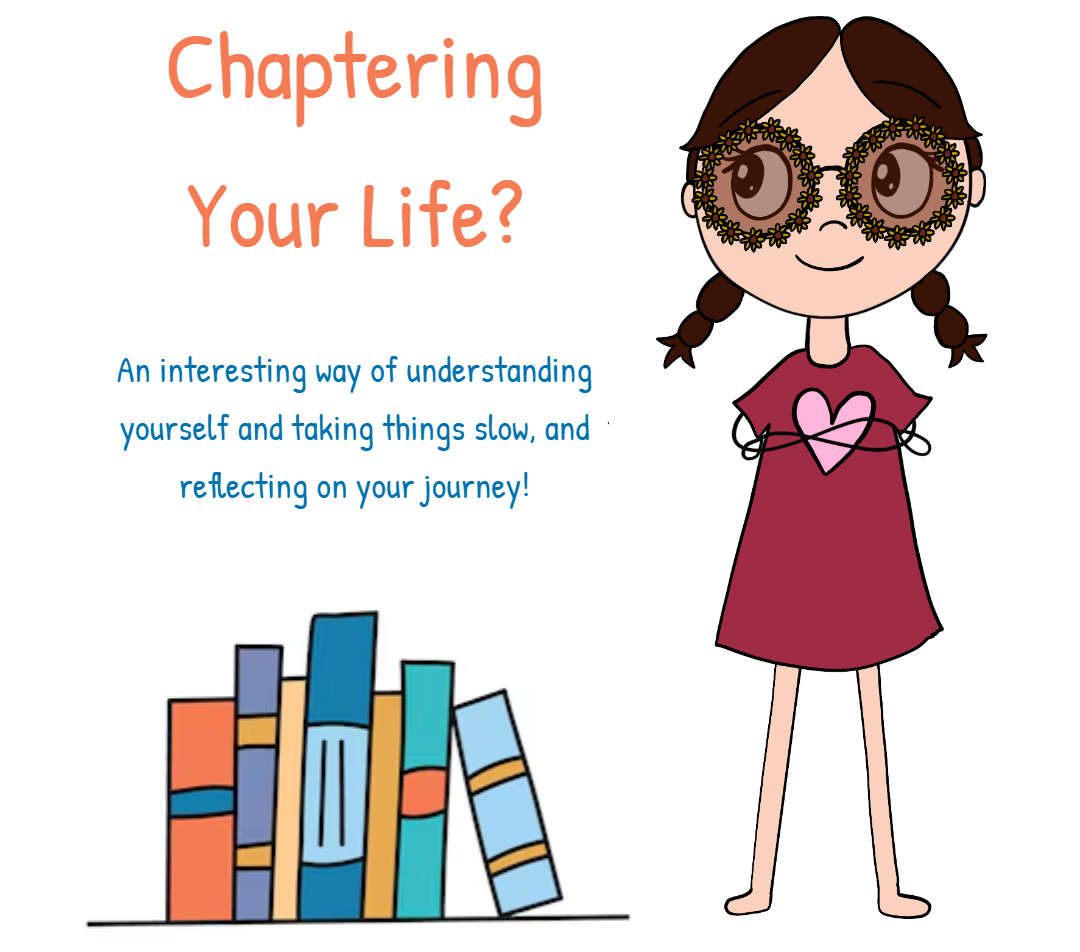
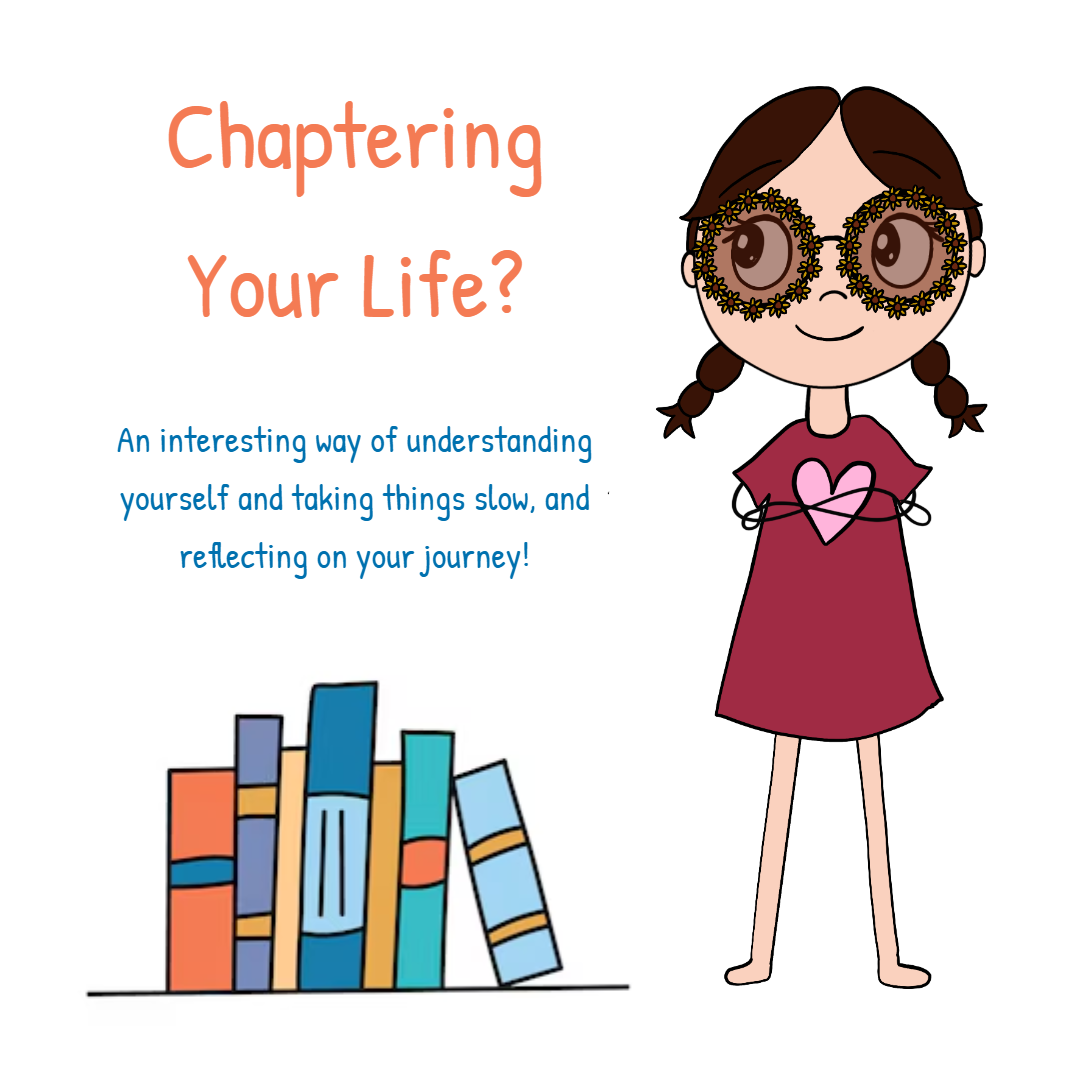
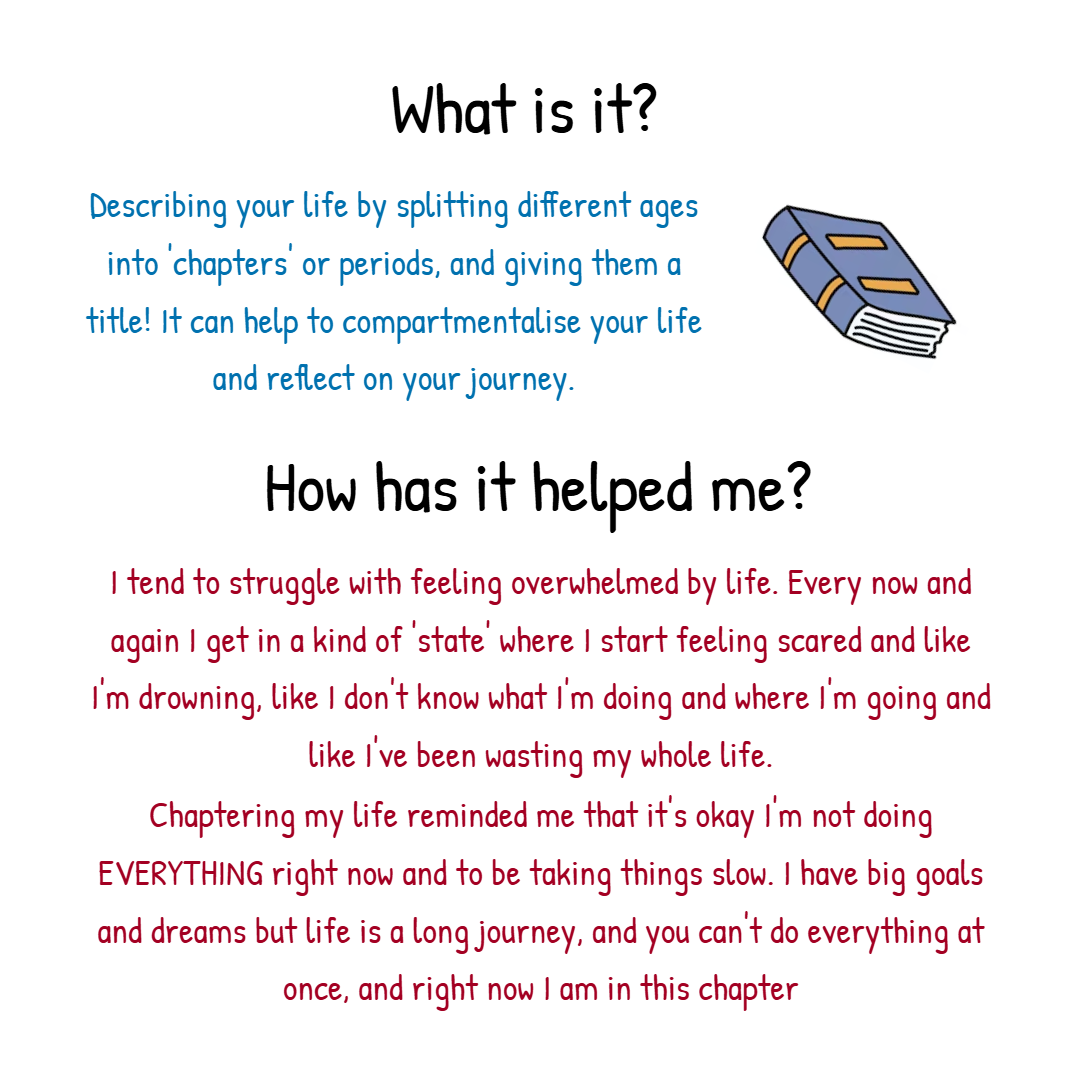
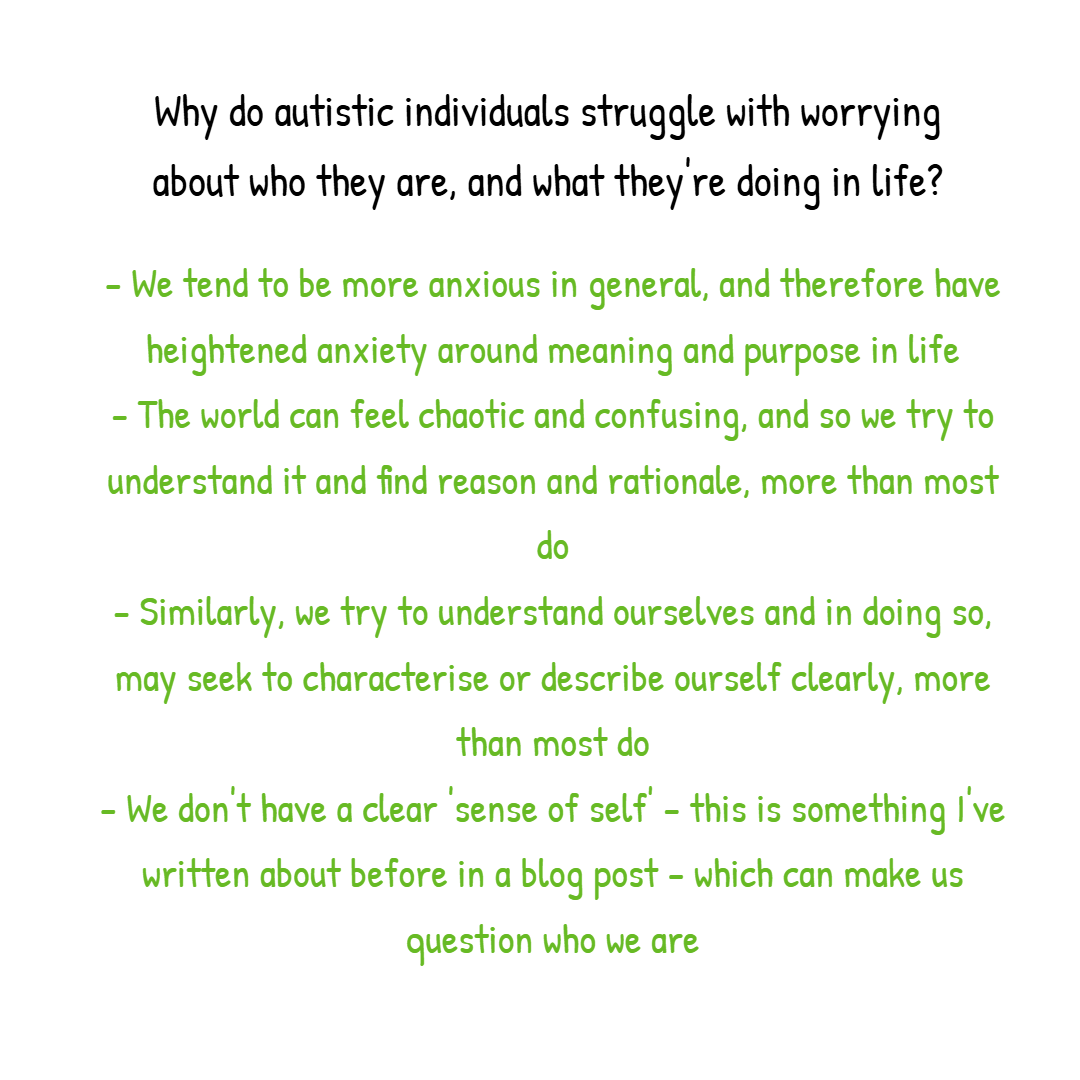
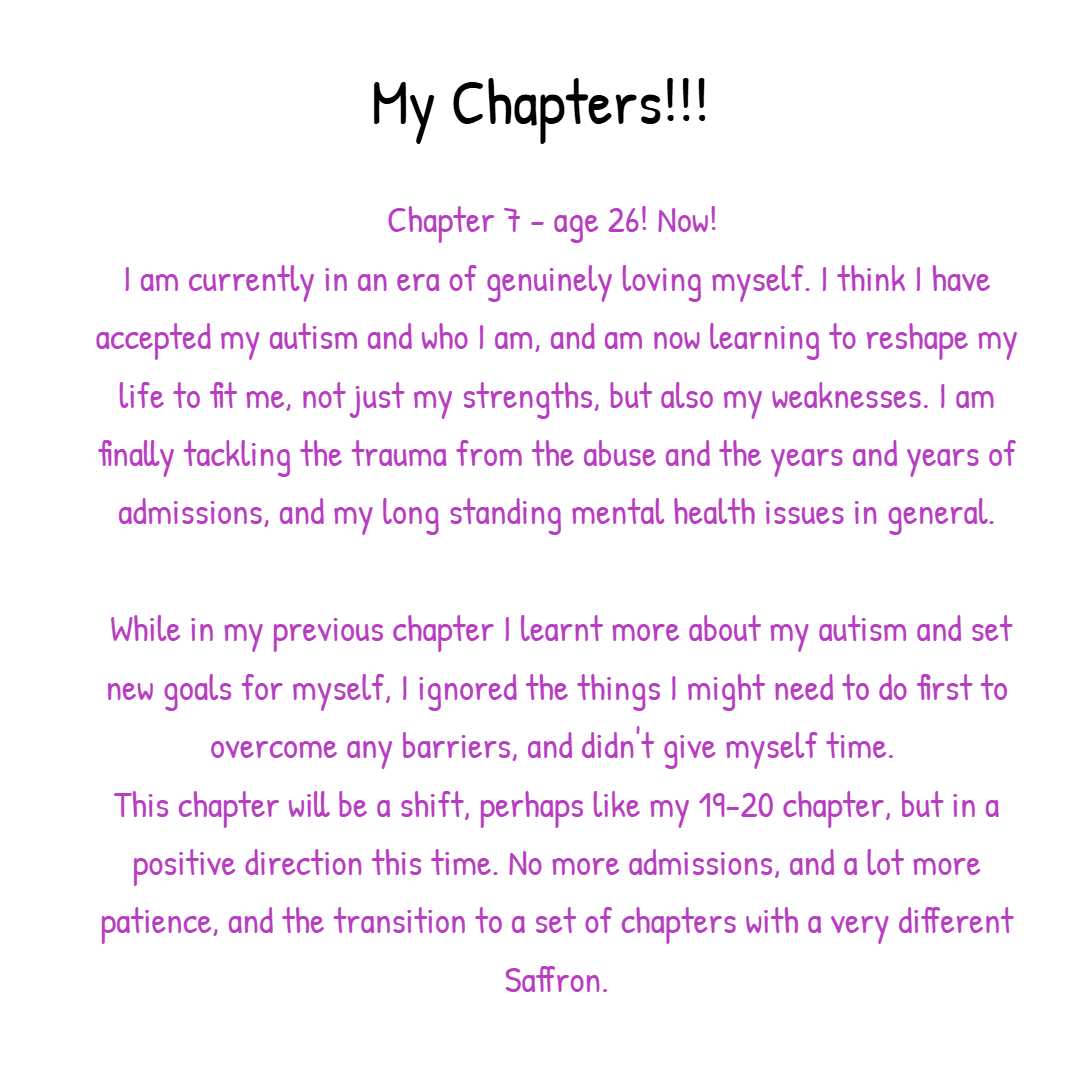
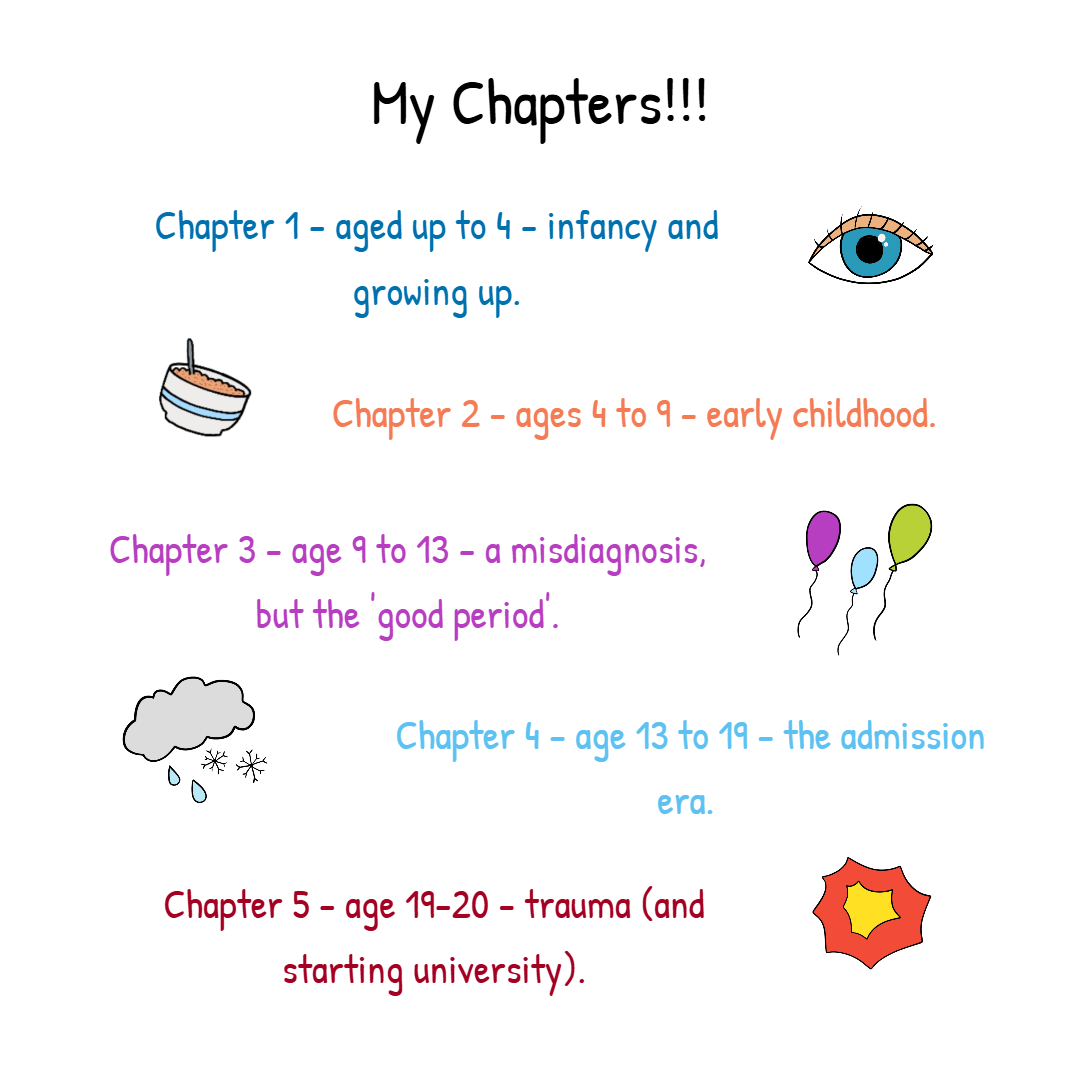
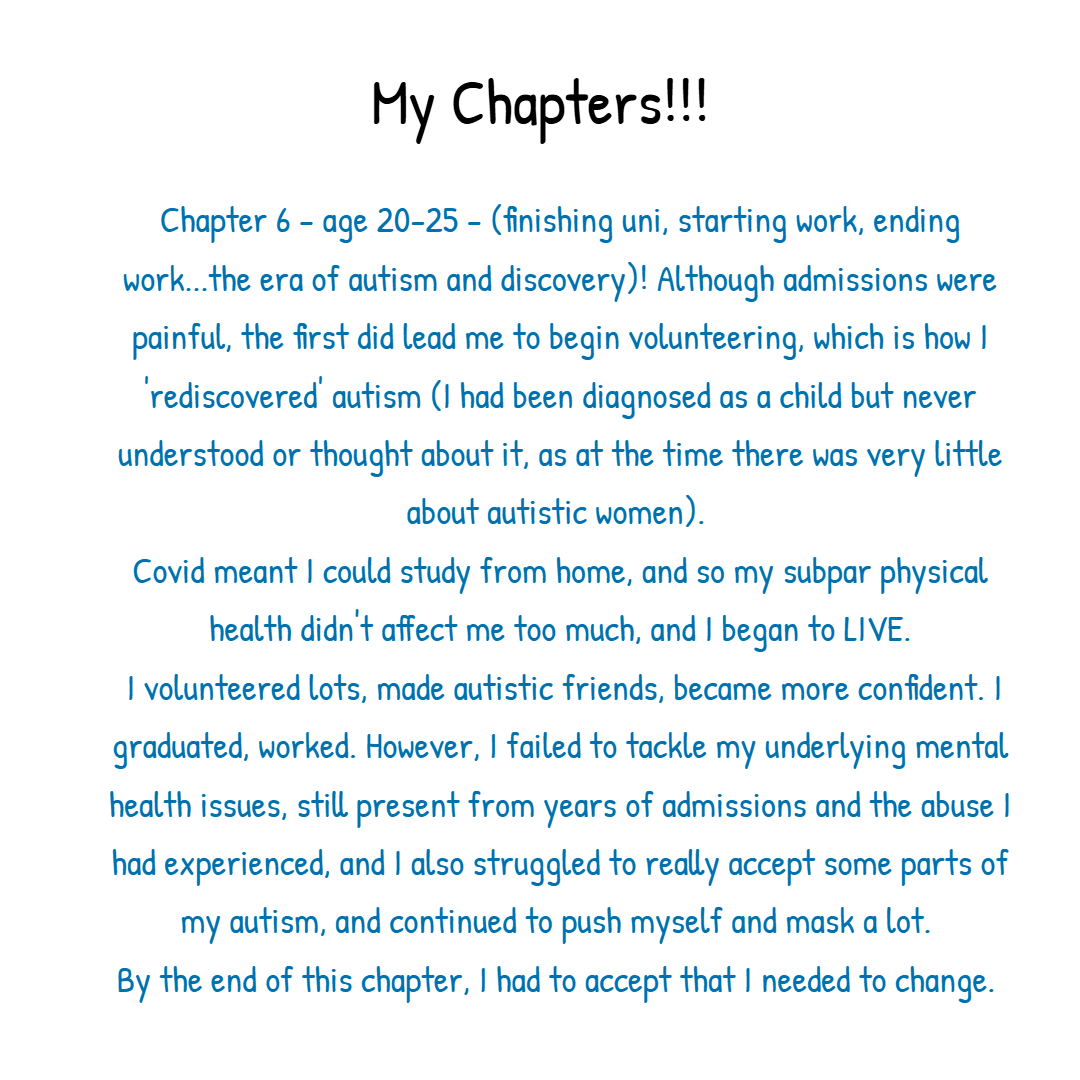
Leave a Reply